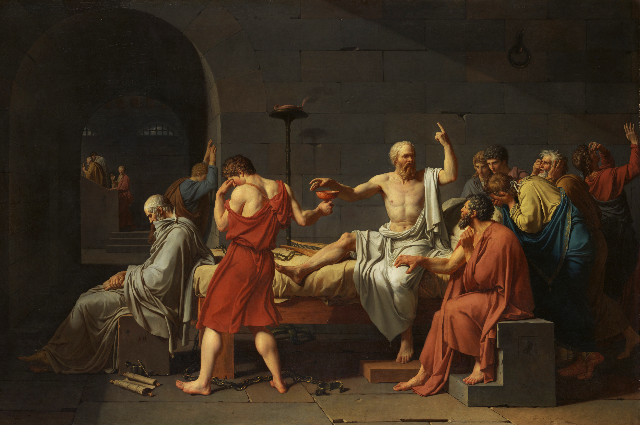So often a courtroom gathers an environment of tension, unthinkable charges, and a witty game of words, played between attorneys who, with their diplomacy, merely try to manipulate the story to impress the decision-maker who would seemingly employ his powers to serve what we call as ‘JUSTICE’. However,
“Never mistake law for justice. Justice is an ideal, and law is a tool.”– L.E. Modesitt Jr.
Once upon a time, human civilization came across the concept of trial and justice. Isn’t the concept of serving right in this world of unjust alluring? While the idea of it sounds justful and indeed liberating, the credibility of this structure and arrangement is a thought to ponder over.
A peculiar rather funny case was heard in the ‘People’s Court’, Athens, against ‘the questioner of everything and everyone’ – the very “infamous” Socrates. The accused, who is also deemed as the founder of Western Philosophy was charged on impiety, speaking against the gods, and corrupting the youth of Athens. The accusations seemed momentous and critical. However, what one could clearly make out if present in the trial is that there wasn’t a complementary evidence to back it up. (Thanks to Plato’s ‘Apology’ we know!)
In what we can call a trial of Philosophy vs State, Socrates was given a ‘fair’ chance to defend himself which he did in quite an interesting way. He went about refusing the claim of being wise, then eliminating the allegations about corrupting the youth by logically breaking the idea of corruption and how he couldn’t be charged for this by firstly, stating the definition and following it up with dividing the idea into intentional and unintentional corrupting. Secondly, he asserts that he alone can’t corrupt the youth and proves he intentionally didn’t do it and for unintentional corrupting, he shouldn’t be charged against. Lastly, Socrates dejects the charge of him being atheist by posing a thought of how could a spiritual person who believes in spiritual things like children of God’s the Oracle of Delphi, etc can be atheist? he Challenged each accusation cleverly and impressively. But that was not enough to Impress the Jury of 500 male citizens. And so was death penalty given as verdict. Though Socrates had other means to avoid the execution i.e., be sensitive to the democratic feelings of the public and of the jury, hide his contempt for the public and the jury or pay a moderate fine for himself. He refuted all of them and stood to his stance facing the execution fearlessly. Why?
For Socrates, this was legally and morally the right thing to do. For, If he escaped or proposed any penalty or fine, however little, it would mean he admits that he is guilty. And he didn’t escape as it would set a poor precedent for others. Though the verdict was not in his favor Socrates believed that every citizen was obliged to follow the rules of the state and hence conformed.
Law grants and instills in people the idea of safety, that their interests are protected and that wrong will be punished. While law acts as a backbone of order, once in awhile we come across situations that shows loopholes of the system quite transparently. Creating nothing but chaos. The validity of this tool isn’t the motive of this write up but to indicate a difference between law and justice could be.

